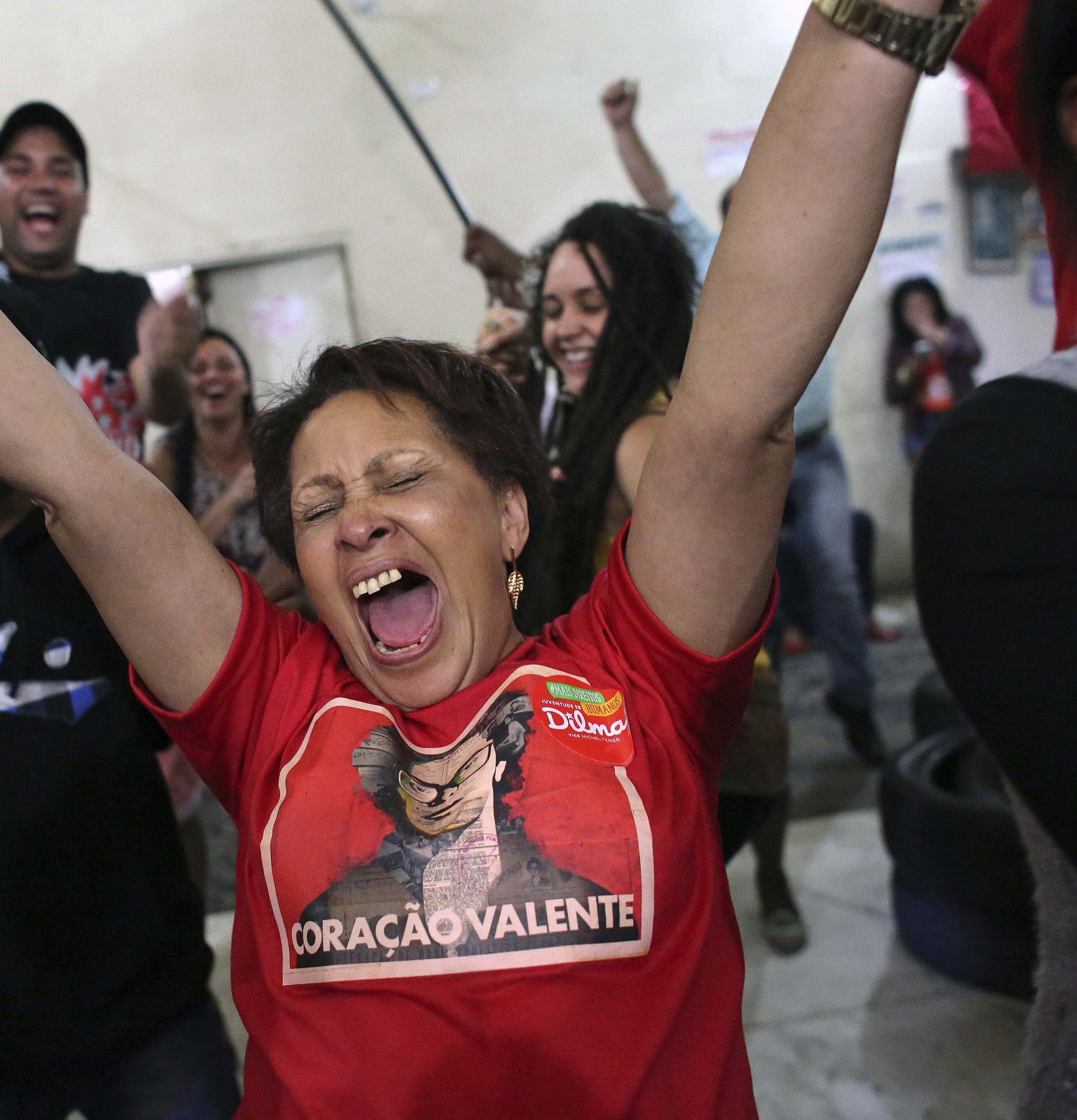Brazilians narrowly re-elect leftist Rousseff as president
Brazilian voters re-elected Dilma Rousseff as president on Sunday in one of the country’s closest, most divisive campaigns in decades. Voters endorsed the leftist leader who has achieved big gains in reducing poverty and unemployment over a centrist challenger who blasted her government over a simmering bribery scandal and a sluggish economy. Rousseff had 51.3 per cent of votes in a runoff against Senator Aecio Neves of the centrist Brazilian Social Democracy Party (PSDB), who had 48.7 per cent support with more than 97 per cent of the votes tallied, according to official results. About 2.7 million votes separated the two candidates.
People are called to choose between two projects, ours is to ensure Brazil continues to grow with more health and education.
President Dilma Rousseff
Rousseff’s victory extends her Workers’ Party rule, which has held the presidency since 2003. During that time, they’ve enacted expansive social programs that have helped pull millions of Brazilians out of poverty and into the middle class Investors have generally disliked Rousseff’s interventionist management of state-run companies and other sectors of the economy, and Brazil’s financial markets plummeted last week when polls showed she was likely to win a second term. They could see another selloff on Monday.

Brazil Americas